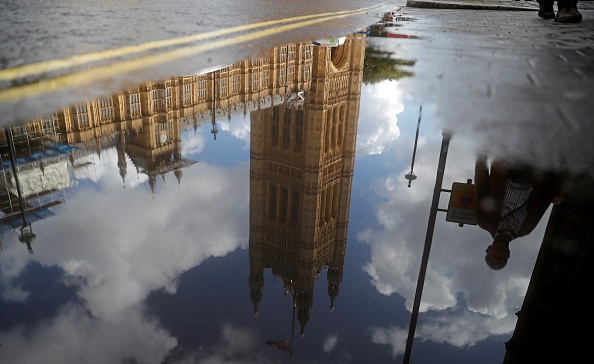This House divided must act with honour, stop hiding, and seek a new mandate from the people

At times of crisis, it is sometimes tempting to seek solace in scripture.
As the US Civil War approached in 1858, a senatorial candidate for Illinois – a certain Abraham Lincoln – clearly thought so.
In his famous “House Divided” speech – during what proved to be a failed campaign but one that set him up for his presidential run – Lincoln decried the continued impasse within the Union between northern and southern states on the issue of slavery.
Utilising Mark 3:25 for inspiration, he argued that “a house divided against itself cannot stand”, pointing out that a perpetual failure to resolve a debate vital to the nation’s future would eventually dissolve the nation itself.
Thus it proved when the guns started firing just two years later.
Mercifully, heated an issue though it has been, Brexit has not engendered the same level of animosity that rent the US asunder in the mid-nineteenth century. But given the antics of the past few days, when parliament again did its utmost to frustrate the progress of a timely Brexit, Lincoln’s statement once more rings true.
We have a House of Commons irrevocably divided. There is seemingly no end to the Brexit process in sight. And the nation is suffering because of it.
It did not, of course, need to happen this way. Last week, Boris Johnson achieved what was commonly regarded as unachievable. Having promised never to renegotiate the deal it had agreed with Theresa May, the EU did just that.
At the Prime Minister’s behest, the UK secured the great prize of freedom from the EU customs union, the great flaw in May’s plan where the UK could have been trapped within it in perpetuity.
Unionist hackles were raised by the deal requiring a de facto, if not de jure, customs border to be set up in the Irish Sea. But Northern Ireland’s population was offered a consent mechanism to prevent their being corralled into this arrangement – and continued membership of the Single Market – without their ongoing approval.
No negotiated deal was ever going be perfect or meet every goal of every party to it. That is the nature of compromise. But this deal proved that the EU would give ground from the absolute certainty of its previous backstop position, as long as checks and balances were instituted to give its movement into fuzzy grey areas some cover.
In short, Boris’ deal is a better deal than that of his predecessor. Unless of course the beholder is a diehard Remainer – and by extension willing to ignore the mandate of the 2016 referendum – angry at a further movement away from EU institutions and towards the reclamation of national sovereignty that this new deal represents.
Even this deadlocked House of Commons has recognised the reality of the situation, and that this deal is about as good as it gets.
On Tuesday, for the first time since early 2017, the House made a positive statement about Brexit, providing its support for the second reading of the Withdrawal Agreement Bill. A victory that had eluded May at three times of asking had been chalked up by Boris.
But old habits of delay die hard for this set of MPs. Having perhaps surprised themselves by making serious progress, they chose to slam the brakes on just as momentum was finally building towards the exit. The government’s speedy legislative timetable was rejected, thereby virtually ensuring we will not now depart the EU on 31 October.
Some will say that the House is perfectly within its rights to request as much time as it wants to scrutinise legislation. But delay serves no positive purpose. All of the arguments that we will hear in the coming weeks will have been rehashed from those first heard months ago over May’s deal.
Unlike that ill-fated venture, this deal has received initial support. But what lies ahead is the same: a parliamentary effort to frustrate and obfuscate when it is endgame action that is urgently required.
For while parliament fiddles, the country burns figuratively in terms of domestic and foreign policy being ignored.
The government has no majority and cannot pass major domestic initiatives. The UK is running on policy fumes from whatever remains of past legislation. And Britain’s international voice is stifled as we lack the bandwidth to intervene decisively in foreign policy issues given the intensity of the Brexit discussion.
The only debate that matters right now is therefore whether our House divided will finally recognise the quagmire it has created, and take the only course of action honourably open to it at this point in time: to dissolve itself and allow the people to reconstitute it according to their wishes and desires.
The government has asked for this twice, only to be rebuffed by opposition claims about needing to prevent a no-deal Brexit first. With a likely EU extension of membership to 31 January now in the offing, that excuse has evaporated.
The people are waiting. It is time for politicians to stop hiding, and finally start taking responsibility for their actions.
Main image credit: Getty